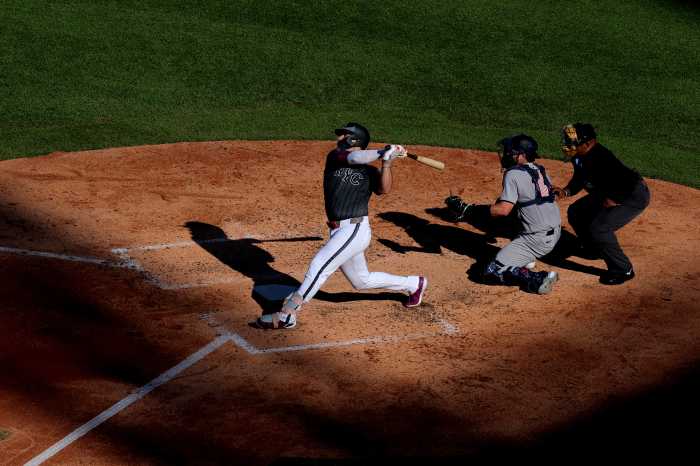
When the New York Knicks paid a king’s ransom to the Denver Nuggets in February 2011 to assure themselves of a superstar scorer, Carmelo Anthony was expected to return the wayward franchise to prominence.
It didn’t happen.
Instead, Melo’s Knicks were mired in mediocrity and dysfunction. To place the blame squarely on his shoulders is grossly unfair, granted. But a team that peaked with a disappointing second-round exit in the 2013 NBA playoffs, with Anthony as its focal point, won’t be remembered fondly.
While the tenure of Melo — whose trade to the Oklahoma City Thunder in exchange for Enes Kanter, Doug McDermott and a second-round pick is expected to be finalized Monday — in New York is at an end, his place in franchise lore is worth examining. With that in mind, here’s a knee-jerk reaction for where he ranks in Knicks history based on their work in the Big Apple.
1. Willis Reed
The only Knick to ever win an MVP award or Finals MVP played all 10 seasons (1964-74) of his storied career in New York. An All-Star his first seven seasons, the physical 6-9 center averaged 18.7 points and 12.9 rebounds during the regular season — and 17.4 ppg and 10.3 rpg in 78 postseason games.
Those feats alone would be a strong argument for the top spot, but Reed’s finest moment doesn’t show up on a boxscore. Hobbled by a thigh injury that forced him out of Game 6 of the 1970 NBA Finals against the Los Angeles Lakers, Reed stunned the Madison Square Garden faithful by emerging from the locker room and scoring the first two buckets of Game 7 and sparking the Knicks to their first championship.
2. Walt Frazier
A close second behind longtime teammate Reed, Clyde’s game was ever more impressive than his famous fashion sense. His arrival as a star in the NBA coincided with the Knicks’ first title.
The seven-time All-Star ranks among one of the best defensive point guards in league history, and he could fill up a stat sheet at will. During 10 seasons with the franchise, Frazier averaged 19.3 points, 6.3 assists and 6.1 rebounds. A reasonable argument could be made for Frazier to have won Finals MVP in either 1970 or ’73 — the last time the Knicks won a title.
3. Patrick Ewing
He’s the Knicks’ all-time leader in points, rebounds, blocked shots and steals. Other than a championship, what more could a fan want from a No. 1 overall pick?
Granted, crown Ewing failed to deliver leaves some fans feeling at least a little sour about what could have been for the Knicks of the 1980s and ’90s. But he did carry the franchise to the 1994 NBA Finals, dragging Hall of Famer Hakeem Olajuwon and the Houston Rockets to seven games before falling short. It’s the closest the franchise has come to another championship during their current 44-year drought.
4. Carmelo Anthony
Such a lofty rank may seem unthinkable in the heat of the moment, given all Melo failed to deliver in six-plus seasons. But time should be kind to a future Hall of Famer who played his finest season wearing blue and orange.
Anthony led the Knicks to a 54-win campaign in 2012-13 that included the franchise’s only division crown since 1994. Along the way, he won his only scoring title (28.7 ppg) and finished third in the MVP race.
Although his Knicks were unsuccessful from a competitive standpoint — which, to be fair, matters most — many of the greatest Knicks below him in these rankings either played with much better teammates, were second or third options, or also couldn’t lead the Knicks to much success. Still, nobody who played at least 300 games with the franchise scored more points per game than Melo’s 24.7. His time in the city, for better or worse, was noteworthy.
5. Earl Monroe
Like Melo, The Pearl was a star before the trade that brought him to New York. Despite this, he came to accept his role in the famed “Rolls-Royce Backcourt” alongside Frazier and help the Knicks to the title in 1973.
A two-time All-Star with the Knicks, Monroe was as gifted a scoring guard as there was in the late 1960s and early ’70s. That he averaged only 16.2 points in eight-plus seasons with the Knicks speaks more to his capacity to play as part of a team than a measure of his knack for his thrilling offense.
Honorable mention: Dick Barnett, Carl Braun, Dave DeBusschere, Richie Guerin, Allan Houston, Bernard King




































